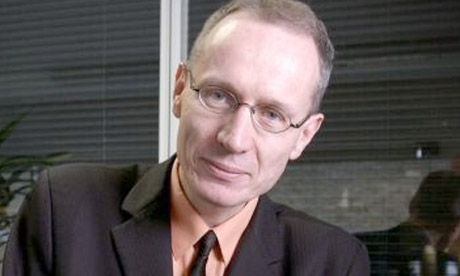
Lots of vitriol is flowing after George Bush's erstwhile White House flack, Scott McClellan, started on his book tour, just when we all had assumed he was in permanent Republican lockstep. The latest to enter the fray is Bob Dole, with withering comments submitted to Jonathan Martin at Politico.com
Bob Dole yesterday sent a scalding email to Scott McClellan, excoriating the former White House spokesman as a "miserable creature" who greedily betrayed his former patron for a fast buck.
In an extraordinary message obtained and authenticated by Politico, Dole uses his trademark biting wit to portray McClellan as a classic Washington opportunist.
"There are miserable creatures like you in every administration who don’t have the guts to speak up or quit if there are disagreements with the boss or colleagues," Dole wrote in a message sent yesterday morning. "No, your type soaks up the benefits of power, revels in the limelight for years, then quits, and spurred on by greed, cashes in with a scathing critique."
Michael Marshall, Dole's spokesman and colleague at the Alston Bird law firm, confirms the message came from the former senator and presidential candidate. "Yes, it is authentic," Marshall wrote in an email.
"In my nearly 36 years of public service I've known of a few like you," Dole writes, recounting his years representing Kansas in the House and Senate. "No doubt you will 'clean up' as the liberal anti-Bush press will promote your belated concerns with wild enthusiasm. When the money starts rolling in you should donate it to a worthy cause, something like, 'Biting The Hand That Fed Me.' Another thought is to weasel your way back into the White House if a Democrat is elected. That would provide a good set up for a second book deal in a few years"
Dole assures McClellan that he won't read the book -- "because if all these awful things were happening, and perhaps some may have been, you should have spoken up publicly like a man, or quit your cushy, high profile job"
"That would have taken integrity and courage but then you would have had credibility and your complaints could have been aired objectively," Dole concludes. "You’re a hot ticket now but don’t you, deep down, feel like a total ingrate?"
He signs the email simply: "BOB DOLE"








